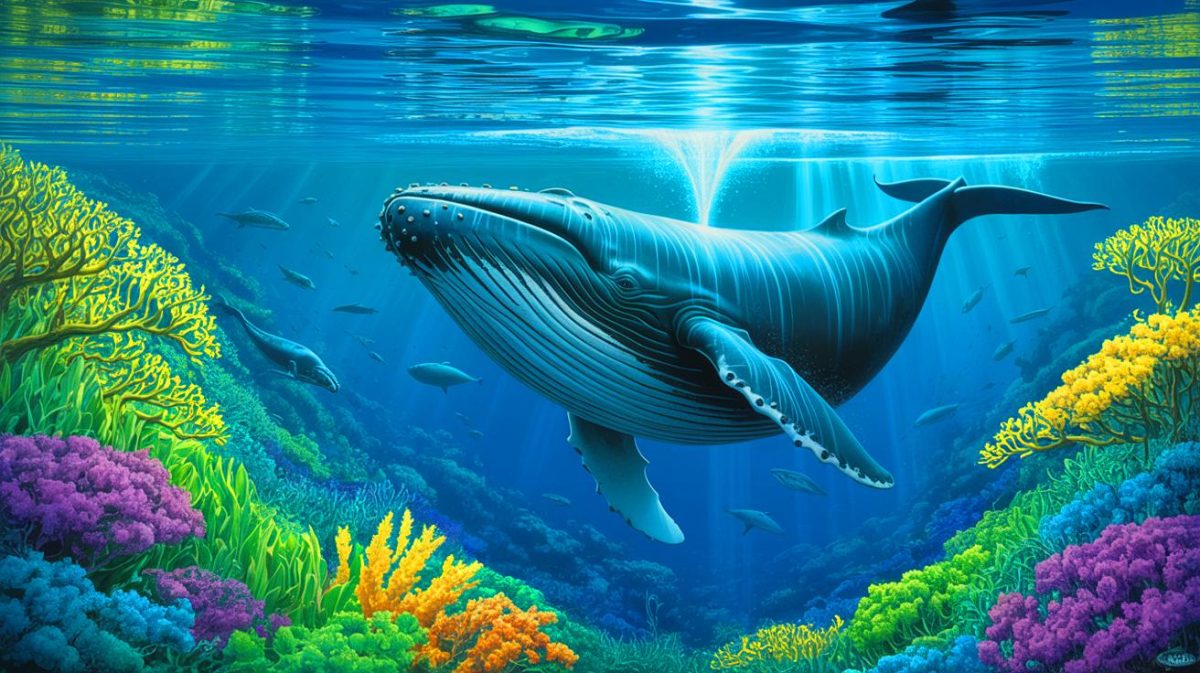| IN A NUTSHELL |
|
Among the many wonders of the marine world, whales stand as colossal giants, mesmerizing us with their grandeur and mystery. While their majestic presence is well-known, their ecological contributions remain a fascinating frontier for scientists. Recent studies have uncovered an intriguing aspect of whale biology: their urine plays a vital role in nourishing marine ecosystems. These revelations not only enhance our understanding of marine ecology but also emphasize the importance of whale conservation. As we dive deeper into this subject, we unveil the surprising ways in which whale urine supports oceanic life and contributes to the global carbon cycle.
Nutrient-Rich Whale Urine Supports Plankton Growth
Whales, often seen as the gentle giants of the sea, are much more than their impressive size and grace. They are essential players in marine ecosystems, primarily through what scientists call the whale pump. This process involves whales feeding in the nutrient-rich depths and releasing waste, including urine, in shallower waters. Such actions enrich the surface waters with nutrients like iron and nitrogen, which are crucial for the growth of phytoplankton.
Phytoplankton, the microscopic plants of the ocean, form the base of the marine food web. Their growth is often limited by nutrient availability, making whale urine a vital fertilizer. By stimulating phytoplankton growth, whales indirectly support the entire marine ecosystem, from tiny fish to massive predators. Furthermore, as phytoplankton photosynthesize, they also contribute to carbon removal from the atmosphere. This process underscores the interconnectedness of ocean life and the significant role whales play in maintaining ecological balance.
The ‘Great Whale Conveyor Belt’
Whales are not static creatures; they migrate across vast oceanic distances, creating what scientists describe as the great whale conveyor belt. This metaphor highlights the role of whales in transporting nutrients across different parts of the ocean. For instance, gray whales feed extensively in the North Pacific during winter and congregate along the California coast in summer. Through their migration, they carry essential nutrients, including carbon and nitrogen, to nutrient-poor tropical waters.
This movement of nutrients is crucial for enhancing marine productivity in otherwise barren regions. The study points out that whales contribute to the transfer of over 46,000 tons of biomass and nearly 4,000 tons of nitrogen annually. A significant portion of this nitrogen comes from whale urine, which plays an indispensable role in boosting phytoplankton activity. By doing so, whales facilitate carbon sequestration, thereby mitigating some effects of climate change. Their role as nutrient recyclers and transporters is vital for ocean health and global ecological stability.
Whale Urine and Carbon Sequestration
The impact of whales extends beyond nutrient cycling; it also encompasses their contribution to carbon sequestration. The enhanced growth of phytoplankton, fueled by nutrients in whale urine, leads to increased photosynthesis. This process not only supports marine life but also aids in the removal of carbon dioxide from the atmosphere. According to recent research, whale-mediated nutrient distribution could lead to the sequestration of an estimated 18,180 tons of carbon annually.
This natural carbon sink is a critical component in the fight against climate change. By supporting phytoplankton, whales indirectly help reduce atmospheric carbon levels. The study emphasizes that while it focuses on specific species like gray and humpback whales, other large baleen whales likely contribute similarly, although their exact impact remains to be fully understood. This highlights the need for further research and conservation efforts to protect these essential marine giants.
Implications for Conservation and Future Research
The revelations about whale urine and its ecological importance have significant implications for conservation efforts. Protecting whale populations is not just about preserving a species; it is about maintaining the health of entire marine ecosystems. As we learn more about the complex roles whales play in nutrient cycling and carbon sequestration, it becomes clear that their survival is intertwined with the well-being of our planet.
Current research sheds light on the intricate connections between whales and ocean health, but there is still much to learn. Scientists advocate for more comprehensive studies to better understand the full scope of whale contributions to marine ecology. Such knowledge is essential for developing effective conservation strategies and ensuring the sustainability of our oceans. As we continue to explore these fascinating creatures and their ecological roles, one must wonder: How can we further leverage our understanding of marine giants to combat climate change and promote ocean health?
Did you like it? 4.5/5 (20)







I never knew whale urine was so important! What a fascinating discovery! 🐋
Is there any impact on human activities, like fishing, due to this whale nutrient cycle?
Wow, whales are like the gardeners of the ocean! Nature is amazing! 🌊
How long have scientists been studying this phenomenon? Seems groundbreaking!
Never thought I’d be reading about whale pee today… 😂
Can whale conservation efforts help combat climate change more effectively?